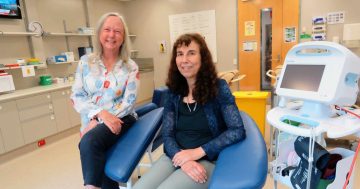There are lots of things you can do if you want to live a long and healthy life writes Em Cassel. Eat healthy, exercise regularly and avoid cigarettes and drinking heavily and take notice of what the Harvard Study of Adult Development says.
 Harvard Study of Adult Development
Harvard Study of Adult Development
The Harvard Study of Adult Development began in 1938.
Back then, it was actually two separate studies of human development.
One started at Student Health Services, with 268 Harvard sophomores—roughly 19 years old, all men—who were selected for observation of “normal” young adult development and the transition from adolescence to young adulthood.
“It was basically a study of thriving—of what goes right in development,” explains Robert Waldinger, M.D., the study’s current director and the co-author of The Good Life: Lessons from the World’s Longest Scientific Study of Happiness.
He adds that his predecessors may have made some missteps early on: “If you want to study ‘normal’ development, you study all white guys from Harvard? It’s not a good look.”
The second study, which started in 1940 at Harvard Law School, was led by a professor named Sheldon Glueck, Ph.D., and his wife, Eleanor, Psy.D., a criminologist with a background in social work.
This study aimed to determine the causes of juvenile delinquency and the Gluecks wanted to find the predictors of thriving in a disadvantaged group. Their study observed 456 working-class males between the ages of 11 and 16.
Waldinger’s predecessor, psychiatrist George Vaillant, M.D., combined the two studies. “He thought it would be really worthwhile to look at them as two contrasting groups and see how their lives played out,” Waldinger says.
In addition to combining the studies, researchers eventually brought in those original men’s spouses, and then their children. In total, the researchers followed 724 families over the last 85 years, making this the longest-running study there is on human development.
“Nobody expected the study to be going this long, 85 years later. The original founders would be, I’m sure, dumbfounded that the study was still continuing,” says Waldinger, the study’s fourth director, with a wide grin.
Strong, healthy relationships help you live longer
One of the study’s most surprising findings has been that relationships have a tremendous impact on our physical health.
More than wealth, fame, social class or IQ, close interpersonal relationships are what keep people happy throughout their lives, Harvard’s research has shown.
Correspondingly, they delay mental and physical decline and reduce mental and physical pain.
It makes some logical sense that community and relationships would be important when it comes to living a long and happy life, but it was a shock to the team just how important they are.
“We didn’t believe our own data when it came out,” Waldinger says.
“It stands to reason that good relationships might keep you happier—that made sense. But why would it predict that you’re less likely to get Type 2 diabetes? Or arthritis? How could that even be a thing? And then other studies began to find the same thing.”
Waldinger says their research into the “whys” of the study is ongoing, but the best hypothesis they have is that our relationships help us regulate stress.
Think about it: If something upsetting happens to you during the course of your day and you have somebody to go home and talk about it with, or to call up and vent, you can feel yourself physically beginning to calm down.
“When something stressful happens, our body goes into fight-or-flight mode, and it’s supposed to do that,” Waldinger says. When that happens, it leads to higher levels of circulating stress hormones and higher levels of inflammation, along with other physiological changes.
Once the stressor is removed, the body should calm back down. But their theory is that, without people to talk to, it may be more difficult for the body to return to equilibrium.
Waldinger says people who experience loneliness and social isolation tend to stay in a low-level state of chronic inflammation, with chronic circulating stress hormones.
“That seems to be the route through which multiple body systems could be affected,” Waldinger says. “Chronic stress.”
More ways to live longer
Now, the Harvard Study of Adult Development hasn’t found that relationships are the only thing that matter if you want to live a long and happy life.
Taking care of your health also really matters. Eating well, getting regular exercise, avoiding excessive alcohol use and smoking—“All that stuff really adds up,” Waldinger says.
And while his research focuses on happiness, he notes that you shouldn’t feel pressure to be happy all the time; it’s just not realistic. “We’ve studied all these lives, and no life is without challenge,” he says.
“No life is without unhappiness and difficulty.”
But he does encourage you to prioritize making and nurturing strong relationships, whether that means calling up a friend you haven’t talked to in a while or joining a softball team to try and make some new friends.
Because when the original group of men in Harvard’s study was in their 80s, researchers asked them to look back on their lives and share their proudest moments and their biggest regrets.
“The most common regret,” Waldinger says, “by far, was, ‘I wish I hadn’t spent so much time at work, and I wish I had spent more time with the people I care about.’”
* Em Cassel is a Minneapolis-based writer and editor, a co-owner of Racket MN, and a VHS collector
This article originally appeared in the July/August 2023 issue of SUCCESS magazine.











